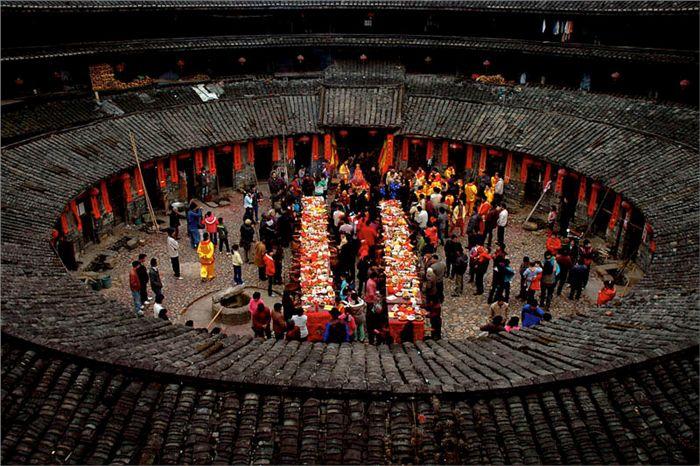Hakka personalities represent reflection of unique traditional culture

The picture shows a wedding ceremony held in an earthen Hakka building. Hakka culture puts an emphasis on family values, which respect a traditional breadwinner and homemaker family structure and define the role of women as virtuous and family oriented.
As a subgroup of Han people with unique cultural characteristics, the Hakka possess geographical characteristics and elements drawn from the Han cultural identity. The Hakka culture is an immigrant cultural identity that primarily draws from the Han culture in the Central Plain. It not only inherited the essence of the Central Plain culture but also embodies the unique cultural factors of immigrants.
Stereotypes of Hakka culture include diligence and hard work, as well as conservative and traditional ideas. The culture puts an emphasis on family values and self-control. These distinct characteristics are reflected in Hakka houses, Hakka folk songs and folk customs, which reveal that the Hakka live in other locations as guests but make themselves feel at home by sticking to subgroup traditions.
Traditional culture is manifested in gender roles. For example, it is common to see a traditional breadwinner and homemaker family structure, defined by male chauvinism and a wife who should be “virtuous and family oriented.” “Cultivation and literacy should be bequeathed to the family,” “respecting teachers and valuing education” and “advocating culture” are significant attitudes of Hakka groups.
Hou Qiuxia is from the School of Education Science at Jiaying University in Guangdong Province.

 PRINT
PRINT CLOSE
CLOSE